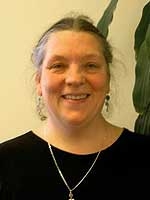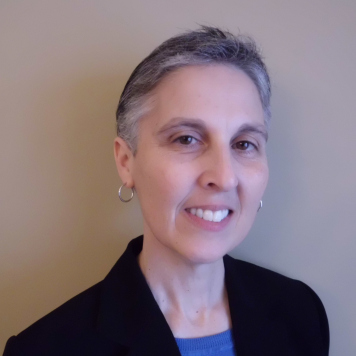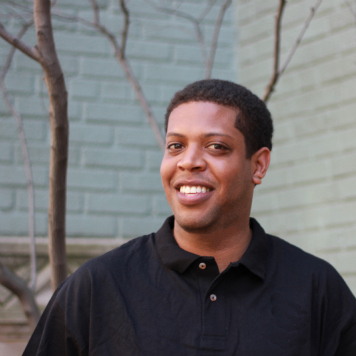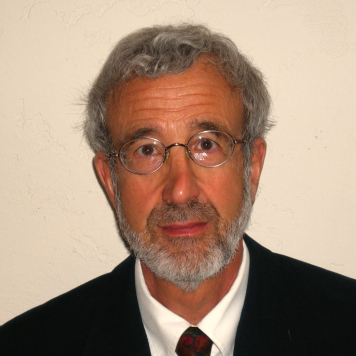Champions of Change Blog
Delivering on A Promise of Justice
Posted by on March 29, 2012 at 12:07 PM EDT
On behalf of the entire team of the Migrant Farmworker Justice Project of Florida Legal Services, I am deeply honored to be selected to receive the White House Champions of Change Award.
Over thirty-five years ago as a law student at Harvard Law School, I, like so many others, was inspired by the example of Cesar Chavez to pursue a career as a farm worker legal services lawyer. Over the years, I have been privileged to work with many fine attorneys and support staff who heeded the same call. In isolated rural communities across this nation, these often unsung “champions of change” have fought for the rights of the most vulnerable workers in our society.
Today as in the past, the majority of farm workers in the United States live in poverty, endure poor working conditions and receive little or no government assistance. At least 50% and probably closer to 2/3 of the farm workers are not legally present in the United States and do not have work authorization. These conditions lead to an unstable labor market which requires constant replenishment with new workers from abroad. Real change requires diverting the costs of instability from the farm workers back to the employers, taxpayers, and consumers who benefit from their work.
Creating a Better Future for Farmworkers
Posted by on March 29, 2012 at 12:05 PM EDT
I am honored to accept this award on behalf of the many farmworkers who opened their homes to me and my students to share food, music, laughter, personal accounts of their successes and challenges, and their ideas about how to construct a better future for themselves. I’d also like to recognize the deep engagement of students, and the consistent guidance and support of colleagues, family and friends who were integral in making this work possible.
My earliest understanding of farm work started in my childhood when my grandparents, parents, siblings, and I worked in our family vineyard in rural upstate New York. It was here that I first encountered the farmworkers who came in the season to help harvest fruits and vegetables. I gained a more nuanced understanding of the unique contributions farmworkers make to agriculture and communities when I participated in the Farmworker Women’s Equity Project, a nationwide research project that engaged both male and female farmworkers in discussions about opportunities for women in farmwork. Whether in New York, Florida or North Carolina, the farmworkers I met shared a common vision that women farmworkers deserve better lives for themselves and their families.
Some years later, I had the great fortune to interview Cesar Chavez about his life. He shared with me his personal stories about bringing together people of diverse backgrounds to work toward improving the lives of farmworkers. He explained his deep belief in the power of collective action to bring about positive change. His vision, humility, and collaborative approach to creating a more just society continue to inspire me today.
A Heart for the Homeless
Posted by on March 29, 2012 at 12:01 PM EDTI humbly receive this recognition from the White House, Cesar Chavez “Champion of Change.” My experience as a “Champion of Change" began at an early age. I grew up as the daughter of migrant farm workers, which prepared me for a life driven to serve low-income families, especially families of farm workers. My father was a World War II Veteran who had 17 children and worked the fields to provide for our family. I experienced hunger and poverty first hand and realized I had to do something to change that lifestyle and mindset. I grew up knowing that God’s hand of blessing was upon my life and that’s why I am passionate about my commitment to serving the hungry, the homeless, and the hopeless.
The Bible states in Psalms 41:1, 2: “Blessed is he who considers the poor; The Lord will deliver him in time of trouble. The Lord will preserve him and keep him alive, and he will be blessed on the earth; you will not deliver him to the will of his enemies.” Consequently, I established a non-profit organization called Help 4 Kidz in memory of my son Frankie, who lost his battle to a malignant brain tumor at the age of 15. Frankie’s dream was change one community at a time by feeding hungry children, keeping a roof over their heads, and bringing hope to the hopeless. His dream is being achieved through Help 4 Kidz’s partnership with USDA and our SNAP satellite office. Help 4 Kidz also has an office, for our HUD Approved Housing Counseling Agency, which provides free pre-purchase counseling, foreclosure Prevention, loan modification, first time homebuyer workshops, renter’s assistance, and more to the consumers in our community.
Teaching Good Habits
Posted by on March 22, 2012 at 1:35 PM EDT My love for the outdoors is what inspires and drives me on a daily basis to teach students about keeping physically fit and the benefits from the natural environment around them. It has been a realization of mine that children today do not get outside to just play and socialize with friends. Wanting to find a way to address this issue two colleagues and I applied and received a Fund For Teacher grant in 2008. This grant allowed us to explore Norway and understand the healthy life style of the Norwegians. Our trip included hiking the Fjords, visiting an outdoor school, meeting and speaking to people about their love for the outdoors. Once we were back from our 12 day excursion we hit the ground running excited to start a new way of teaching physical activity to our students. Our idea was simply called the Outdoor Classroom. We took our students out to explore a local park near our school and quickly discovered that many of our students had never been to the park before. This fact propelled us to further develop and tweak our program to fit the needs of our students. The once a month outdoor classrooms are spent hiking, exploring, orienteering, snowshoeing, team building and journaling. Students are learning that the park lands have so much to offer and it’s free recreational fun right in their own backyards.
My love for the outdoors is what inspires and drives me on a daily basis to teach students about keeping physically fit and the benefits from the natural environment around them. It has been a realization of mine that children today do not get outside to just play and socialize with friends. Wanting to find a way to address this issue two colleagues and I applied and received a Fund For Teacher grant in 2008. This grant allowed us to explore Norway and understand the healthy life style of the Norwegians. Our trip included hiking the Fjords, visiting an outdoor school, meeting and speaking to people about their love for the outdoors. Once we were back from our 12 day excursion we hit the ground running excited to start a new way of teaching physical activity to our students. Our idea was simply called the Outdoor Classroom. We took our students out to explore a local park near our school and quickly discovered that many of our students had never been to the park before. This fact propelled us to further develop and tweak our program to fit the needs of our students. The once a month outdoor classrooms are spent hiking, exploring, orienteering, snowshoeing, team building and journaling. Students are learning that the park lands have so much to offer and it’s free recreational fun right in their own backyards. In addition to the Outdoor Classroom I have helped to establish other programs that complement our outdoor concept. Our school is a “Safe Routes to School” school which is a national program that promotes safely walking and bicycling to school. We are encouraging our students to walk or bike to school rather than be driven which supports physical activity and a greener environment. Our school participates in special events sponsored by Safe Routes to School which includes the National and Massachusetts Walk To School Days, celebrating students walking or biking to and from school.
Soccer for Fitness and Belonging
Posted by on March 22, 2012 at 1:35 PM EDT At the age of 5, I was introduced to the game of soccer at my neighborhood recreation center in Washington, DC by Coach King. He hailed from the island of Trinidad where soccer was his passion. He wanted to instill this passion into a bunch of neighborhood kids that had nothing to do during the summer months and he did just that for me. Because of the introduction to the game, soccer has been a vessel for me to experience a wide range of opportunities. I was able to win several state and regional championships while being named a Parade All-American in the process, all while discovering the importance of living a healthy lifestyle. It has taken me to other countries with the US Youth National Teams and gained me a scholarship to Georgetown University.
At the age of 5, I was introduced to the game of soccer at my neighborhood recreation center in Washington, DC by Coach King. He hailed from the island of Trinidad where soccer was his passion. He wanted to instill this passion into a bunch of neighborhood kids that had nothing to do during the summer months and he did just that for me. Because of the introduction to the game, soccer has been a vessel for me to experience a wide range of opportunities. I was able to win several state and regional championships while being named a Parade All-American in the process, all while discovering the importance of living a healthy lifestyle. It has taken me to other countries with the US Youth National Teams and gained me a scholarship to Georgetown University. Because of the positive effects that the relationship I had with coach King and the positive lessons I learned through the game I really wanted other young people to be afforded the same opportunity that I was. After Coach King was long gone I returned to the same recreation center to continue the great work he started, volunteering during the summer months, introducing the game to a demographic that would never play otherwise. To this day it continues to be my passion and life work at DC SCORES.
Learn more about , ServiceHelping A Community Discover (Re-Discover) An Active Lifestyle
Posted by on March 22, 2012 at 1:27 PM EDT
I have practiced my medical specialties of family and preventive medicine in rural New Mexico for 40 years. One would think that a surrounding landscape of mountains, mesas and endless vistas would lead almost everybody in my community of Cuba to an active outdoor lifestyle. But sadly this is often not the case. Our town – like many others – has become a place for motor vehicles rather than pedestrians. Our trails often connect natural places to each other rather than to places where people live. Success in our schools and workplaces often deprives us of the time we need to restore our minds and bodies through outdoor activity. Increasingly our recreation depends upon “screen time,” rather than time with others. We become heavier, and develop diabetes, high cholesterol, and cardiovascular diseases at younger ages.
About five years ago I decided to take my practice out of the exam room and into my community. I organized a group of leaders that shared my vision for a healthier Cuba, developed a broad local and external partnership, and created a program of outdoor physical activity – Step Into Cuba. We soon became aware that solid research paves the way for communities such as ours to successfully promote active living, but implementing the recommendations in a rural New Mexico community of under 2000 people is a challenge. But we have been creative and persistent and mutually supporting, and many of our ambitious goals are now in sight.
- &lsaquo previous
- …
- 123
- 124
- 125
- 126
- 127
- 128
- 129
- 130
- 131
- …
- next &rsaquo
White House Blogs
- The White House Blog
- Middle Class Task Force
- Council of Economic Advisers
- Council on Environmental Quality
- Council on Women and Girls
- Office of Intergovernmental Affairs
- Office of Management and Budget
- Office of Public Engagement
- Office of Science & Tech Policy
- Office of Urban Affairs
- Open Government
- Faith and Neighborhood Partnerships
- Social Innovation and Civic Participation
- US Trade Representative
- Office National Drug Control Policy
categories
- AIDS Policy
- Alaska
- Blueprint for an America Built to Last
- Budget
- Civil Rights
- Defense
- Disabilities
- Economy
- Education
- Energy and Environment
- Equal Pay
- Ethics
- Faith Based
- Fiscal Responsibility
- Foreign Policy
- Grab Bag
- Health Care
- Homeland Security
- Immigration
- Innovation Fellows
- Inside the White House
- Middle Class Security
- Open Government
- Poverty
- Rural
- Seniors and Social Security
- Service
- Social Innovation
- State of the Union
- Taxes
- Technology
- Urban Policy
- Veterans
- Violence Prevention
- White House Internships
- Women
- Working Families
- Additional Issues

